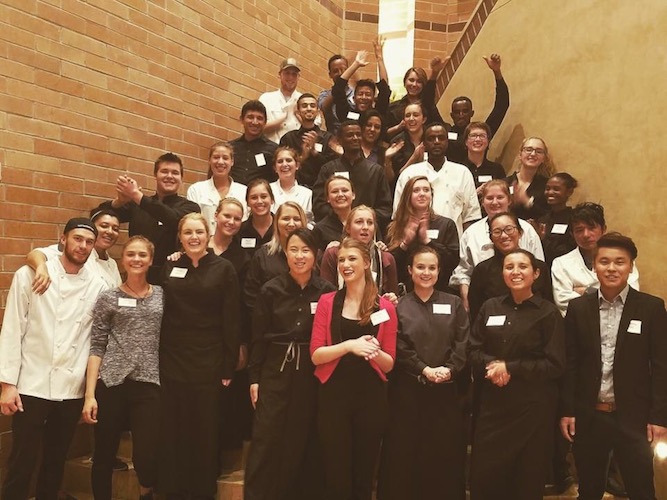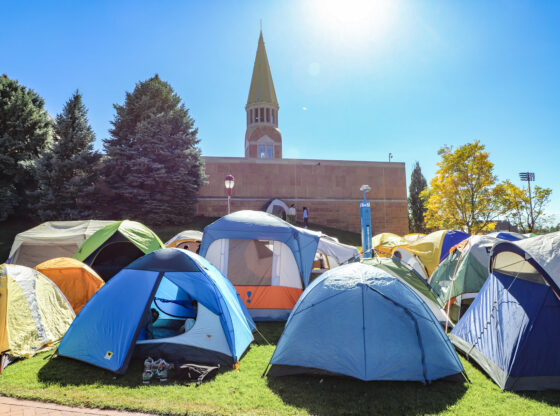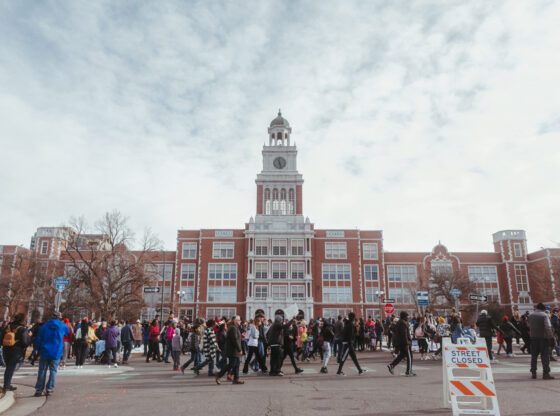Over the course of spring quarter, a group of students in the Fritz Knoebel School of Hospitality found themselves working on a very different kind of school project. The students of the Managing Human Capital in Hospitality class had the opportunity to act as mentors for refugees living in the Denver area as they prepared for employment in the hospitality industry.
The student mentors worked with these hardworking trainees to help them sharpen essential skills necessary to have in the workforce, one of the most valuable being experience. Working side by side, the students and their new protégés helped to plan and work the DU Chancellor’s Dinner. Taking place on April 14, the Chancellor’s Dinner not only signified an important night for the DU community, but also a moment of accomplishment for the student mentors and their protégés.
Sierra Teply, a junior hospitality major, recalls her experience as a mentor to protégé Dhan as life-changing, saying “It was more than just an assignment. It was a chance to help another human succeed.”
Although originally from Bhutan, Dhan’s family lived in Nepal for most of his life, seeking safety from widespread political unrest in their home country. Rather than dwell on the hardships of his past, Dhan enjoys focusing on the possibilities of the future. Described as a man with a contagious smile, Dhan worked hard on perfecting his English and growing his experience in the hospitality industry. “We hear about the refugee crisis in the news constantly,” said Teply. “However, it is entirely different hearing the perspectives of people living that crisis.”
Megan Hustana, another junior in the hospitality school, found the language barrier to be one of the more difficult aspects of the program.
Originally from Cuba, Hustana’s mentee immigrated to the United States in hopes of a better life. When the students conducted their first interview, Jorge struggled to respond in English. Due to her own studies in the Spanish language, Hustana and Jorge were able to communicate with one another in his native tongue. With practice, by the Chancellor’s Dinner, Jorge was equipped with a handful of useful English phrases to help him successfully serve wine at the event.
Towards the end of the program, the students of Human Capital discussed who had learned more—the mentors or the protégés.
“We have learned about managing human capital in the workplace, the importance of connecting with employees and learning more about them as well as opening our eyes to different cultures and ways of life,” said Hustana.
Many of us are guilty of getting caught up in the monotony of the day-to-day. We tend to forget about those around us, whether it be in Denver or across the world, who have been affected by unspeakable hardships. Those in the mentorship program were reminded of how important it is to remain culturally aware of the world we live in.
“It’s something that I think more people in the world need to work on,” claimed Teply. “Myself included.”











